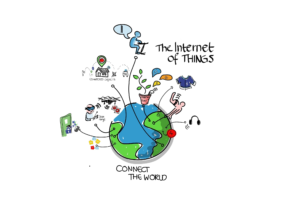Exploring the Potential of Quantum Computing for Everyday Use
Quantum computing is poised to transform countless aspects of everyday life, from enhancing medical diagnoses to optimizing supply chains. This revolutionary technology leverages the principles of quantum mechanics to perform computations that are impossible for classical computers. The potential applications are vast, offering solutions to complex problems previously deemed intractable. However, widespread adoption faces hurdles that need addressing. This article explores the transformative potential of quantum computing for everyday use, examining its capabilities, challenges, and future implications.
Understanding the Basics of Quantum Computing
What is Quantum Computing?
Quantum computing leverages the principles of quantum mechanics to perform calculations. Unlike classical computers, which use bits representing 0 or 1, quantum computers use qubits, which can represent both 0 and 1 simultaneously due to a phenomenon called superposition. Furthermore, qubits can entangle with each other, allowing for correlations that are impossible in classical systems. This unique ability enables quantum computers to potentially solve complex problems that are far beyond the capabilities of even the most powerful supercomputers. For instance, the ability to perform calculations far beyond the capacity of classical computers is one example of this potential.
How Does Quantum Computing Work?
Quantum computers employ a range of quantum phenomena, like superposition and entanglement, to solve complex problems. Superposition allows a qubit to exist in multiple states simultaneously. Entanglement links two or more qubits so that they share the same fate, even when separated by vast distances. Quantum algorithms exploit these quantum effects to perform computations far beyond the capability of traditional computers. One significant example is that these algorithms allow for a huge increase in the amount of calculations a computer can perform, even faster than the most advanced supercomputers.
Quantum Computing Applications in Healthcare
Revolutionizing Medical Diagnoses
Quantum computing holds immense promise for healthcare, particularly in areas like drug discovery and disease diagnosis. By simulating molecular interactions at the atomic level, quantum computers can accelerate the drug discovery process, allowing scientists to design and test new drugs and treatments more efficiently. They can also help with analyzing complex medical images and identify patterns that are difficult to detect using classical methods. The ability of quantum computers to perform complex calculations in a short time allows for a significant acceleration in the drug discovery and medical research areas. This acceleration of medical research is one key benefit.
Personalizing Treatment Plans
Another area where quantum computing can revolutionize healthcare is in personalized medicine. By analyzing vast datasets of patient information, including genetic makeup, medical history, and lifestyle factors, quantum algorithms can identify patterns and predict potential health risks, thus allowing for the development of tailored treatment plans. Early identification of specific medical concerns allows for prompt and customized treatment plans.
Quantum Computing in Logistics and Supply Chains
Optimizing Supply Chains
Quantum algorithms can significantly optimize complex supply chains. By considering multiple variables, such as transportation costs, inventory levels, and demand fluctuations, these algorithms can determine optimal routes, inventory levels, and resource allocation. This optimization leads to significant cost savings and efficiency gains for companies involved in supply chain management, and can help identify and solve any potential issues in advance.
Enhancing Logistics Planning
Quantum computing algorithms can analyze complex data sets to predict and mitigate potential disruptions in logistics and shipping. By evaluating factors such as weather patterns, traffic conditions, and potential delays, companies can proactively adjust their strategies, potentially preventing delays and inefficiencies. Predictive modeling using quantum computing is key to minimizing delays and maximizing efficiency.
Quantum Computing in Finance and Investments
Enhancing Financial Modeling
Quantum algorithms can enhance financial modeling, potentially revolutionizing investment strategies and risk assessment. Quantum computers can analyze massive datasets of financial market data to identify patterns and predict market fluctuations more accurately. This allows for better-informed investment decisions and potentially reduced risks.
Managing Portfolio Risk
Quantum simulations can help manage portfolio risk by analyzing the correlation between different assets. This capability is useful to create optimized investment strategies for improved returns and minimize risk.
Challenges and Future Considerations
Current Limitations of Quantum Computers
Despite the remarkable potential, quantum computing faces several hurdles. Currently, quantum computers are not yet sufficiently powerful to handle complex real-world problems. The limited number of qubits and the need for specialized quantum algorithms limit their practical application. Maintaining qubit coherence and error reduction are ongoing challenges.
Overcoming the Barriers
Continued advancements in quantum hardware and software are crucial to address these challenges. Research efforts are focusing on developing more stable and powerful quantum processors with a larger number of qubits. Also, developing specialized quantum algorithms tailored to specific applications is essential for translating the theoretical potential into practical benefits. Research and development will help overcome these limitations.
Quantum Computing and Cybersecurity
Improving Cybersecurity Solutions
Quantum computing could also significantly impact cybersecurity. While it might pose a threat to current encryption methods, it also creates possibilities for developing quantum-resistant encryption techniques. Developing new quantum encryption protocols and algorithms will be crucial to ensure the integrity and security of data in a quantum computing era. The ability to develop novel encryption techniques that are resistant to quantum attack is a significant advantage.
Maintaining Data Security
Researchers are actively developing new quantum-resistant cryptographic systems, ensuring that confidential information remains secure. Adapting to new cybersecurity solutions is crucial for protecting our data from attacks as quantum computing technologies advance.
Quantum Computing and Artificial Intelligence
Accelerating AI Capabilities
Quantum computing has the potential to revolutionize the field of Artificial Intelligence by significantly boosting the capabilities of machine learning algorithms. It can solve complex machine learning problems, handle large datasets with greater speed and efficiency and potentially develop more sophisticated AI models that can handle more complex problems.
Enhancing Machine Learning
Quantum algorithms allow for handling large datasets and generating new insights with unparalleled speed and precision. This efficiency can lead to improved decision-making, enabling better AI models. This can lead to a better understanding and utilization of information in fields such as data analysis.
In conclusion, quantum computing has the potential to revolutionize everyday life, from optimizing logistics and enhancing medical treatments to boosting the efficiency of AI algorithms and powering new types of cybersecurity solutions. While significant challenges remain, ongoing advancements in quantum hardware and software are paving the way for a future where quantum computing becomes an integral part of everyday technology. To fully harness this potential, continued investment in research, development, and education is crucial. Embracing quantum computing technologies will lead to unprecedented innovations and solve critical global issues. We encourage readers to explore this transformative technology and stay informed about its developments.
Share this content:














2 comments